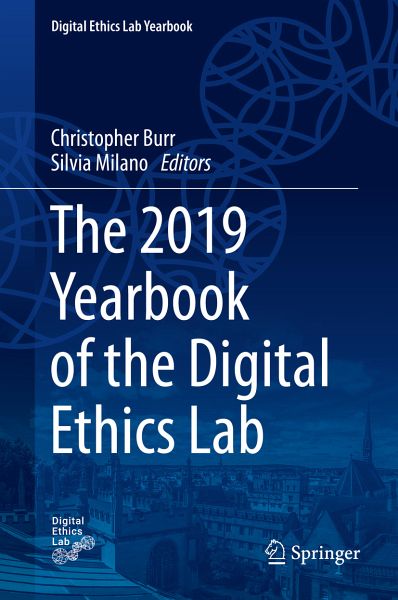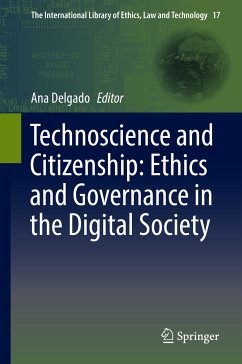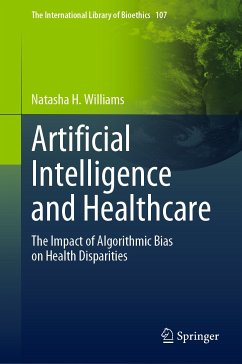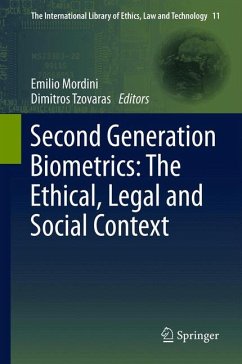
The 2019 Yearbook of the Digital Ethics Lab (eBook, PDF)
Versandkostenfrei!
Sofort per Download lieferbar
40,95 €
inkl. MwSt.
Weitere Ausgaben:

PAYBACK Punkte
20 °P sammeln!
This edited volume presents an overview of cutting-edge research areas within digital ethics as defined by the Digital Ethics Lab of the University of Oxford. It identifies new challenges and opportunities of influence in setting the research agenda in the field.The yearbook presents research on the following topics: conceptual metaphor theory, cybersecurity governance, cyber conflicts, anthropomorphism in AI, digital technologies for mental healthcare, data ethics in the asylum process, AI's legitimacy and democratic deficit, digital afterlife industry, automatic prayer bots, foresight analys...
This edited volume presents an overview of cutting-edge research areas within digital ethics as defined by the Digital Ethics Lab of the University of Oxford. It identifies new challenges and opportunities of influence in setting the research agenda in the field.
The yearbook presents research on the following topics: conceptual metaphor theory, cybersecurity governance, cyber conflicts, anthropomorphism in AI, digital technologies for mental healthcare, data ethics in the asylum process, AI's legitimacy and democratic deficit, digital afterlife industry, automatic prayer bots, foresight analysis and the future of AI. This volume appeals to students, researchers and professionals.
Dieser Download kann aus rechtlichen Gründen nur mit Rechnungsadresse in A, B, BG, CY, CZ, D, DK, EW, E, FIN, F, GR, HR, H, IRL, I, LT, L, LR, M, NL, PL, P, R, S, SLO, SK ausgeliefert werden.












